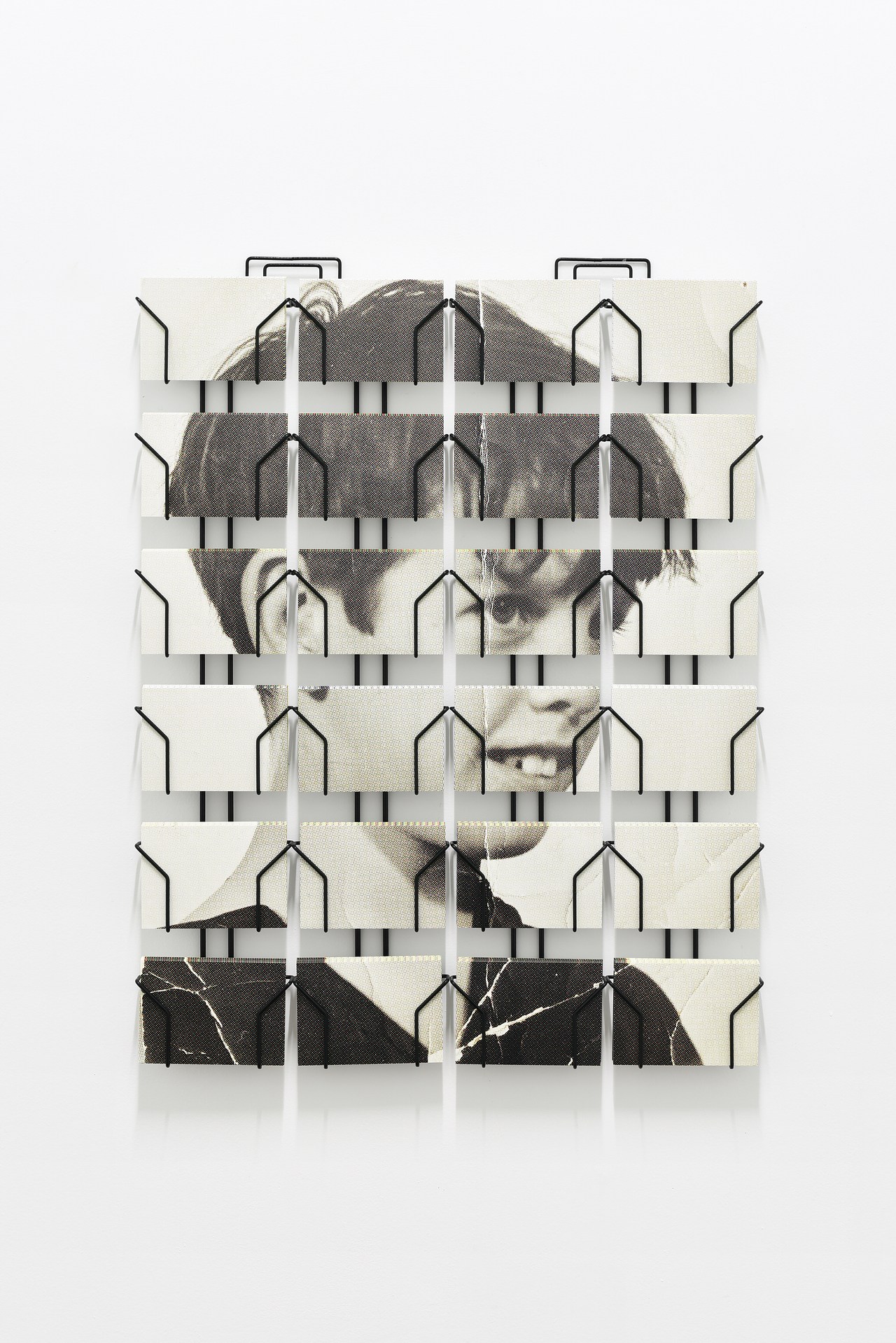Puits
2008 - Sculpture (Sculpture)
Guillaume Leblon
Puits (“Wells”) is a circle made ??of raw earth elements, at the scale of Leblon’s hands. In this work, Guillaume Leblon reclaims the tactility of clay, as a classical material of sculpture, which we can also see in his other works like Raum (2006), National Monument (2006), and Notes (2007). Puits (“Wells”) suggests a universe of the past, like the 700 wells of Mohenjo-daro, the thriving Indus city from the second millennium BC (Pakistan, cf. Link). In the case of Guillaume Leblon, this form is a reminiscencence, as developed by Aby Warburg, whose forms survive and reappear through the ages and places. This work points toward the idea of wells, mimicking their shapes, while questioning their use. This well is not functional and resists to water. Its hole is replaced by a space enclosed with brick. Maybe the well is a metaphor of the opening artist’s studio to the world? The artist introduces a sense of fragility between unstable equilibrium and the threat of collapse.
Guillaume Leblon is a sculptor, who questions the vocabulary of forms – he uses material encompassing copper alloy of tin and zinc, flows like water, lightning, smoke, and space to express notions of landscape and weightlessness. During an exhibition at Sonsbeek in the Netherlands, Leblon proposed the work “Temps libre” (Free Time) (2001), a jump from three floors of the tallest building in Arnhem. His works function as indices, in form, references or emotions, creating a very special atmosphere which reflects his interest in modernism that he defines as “a total art that includes a real time.” In Leblon’s work, perception of space by the viewer is often precarious and ambiguous due to subtle alterations. Guillaume Leblon was born in 1971 in Lille, France. He lives and works in Paris.
Colors:
Related artist(s) to: Guillaume Leblon » Ryan Gander, » Dove Allouche, » Laurent Montaron, » Aurélien Froment, » Dora GarcíA, » Gabriel Orozco, » Gerhard Richter, » Gustav Metzger, » Joachim Koester, » Julien Discrit

© » KADIST
Joachim Koester
2007Tarantism is the name of disease which appeared in southern Italy, resulting from the bite of a spider called Tarantula...

© » KADIST
Dora Garcia
2012KLAU MICH is a TV and performance project by Dora García with Ellen Blumenstein, Samir Kandil, Jan Mech, TheaterChaosium, and Offener Kanal Kassel, during the 100 days of dOCUMENTA (13)....

© » KADIST
Laurent Montaron
2006This film refers directly and fictionally to one of the first media dramas: the burning of the Zeppelin aircraft LZ 129 Hindenburg as it landed in New York in 1937...

© » KADIST
Dora Garcia
2008Dora Garcia’s work is a result of institutional critique and more generally that of language, following the conceptual artists of the 1960s like Weiner and Kosuth and Fraser from the 1980s and 1990s...

© » KADIST
Gabriel Orozco
1992Gabriel Orozco often documents found situations in the natural or urban landscape...

© » KADIST
Joachim Koester
2006Physical and mental exploration have been founding elements in Joachim Koester’s research for several years...

© » KADIST
Aurélien Froment
2008dbqp is a photographic series in which the artist handles an enlargement of the plate with three cutout windows which was used for L’Archipel (The Archipelago) in collaboration with Pierre Leguillon...

© » KADIST
Aurélien Froment
2008The Théâtre de poche video is inspired by Arthur Lloyd / “Human Card Index”, a magician who was famous for being able to take out of his pockets any image requested by his spectators...

© » KADIST
Ryan Gander
2012Epiphany…learnt through hardship is composed of a bronze sculpture depicting the model of the little dancer of Degas, in the pose of a female nude photographed by Edward Weston (Nude, 1936) accompanied by a blue cube...

© » KADIST
Gabriel Orozco
2002Gabriel Orozco comments: “In the exhibition [Documenta 11, Kassel, 2002], I tried to connect with the photographs I took in Mali in July...

© » KADIST
Gabriel Orozco
1994Charco portátil congelado (Frozen Portable Puddle, 1994) is a photographic record of an installation of the same name that Gabriel Orozco made at Witte de With Center for Contemporary Art in Rotterdam for the group exhibition WATT (1994)...








